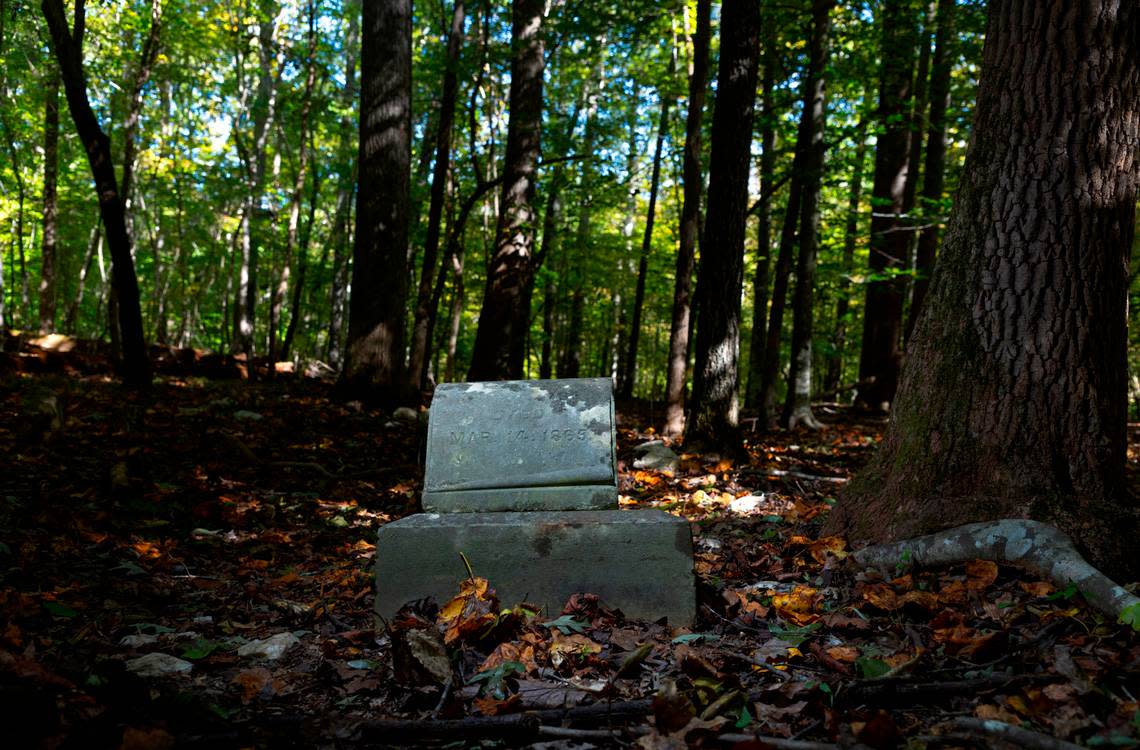Can people be buried with their pet (or pet ashes) in North Carolina? Here’s the law

- Oops!Something went wrong.Please try again later.
There are a few pet cemeteries in North Carolina, allowing many the comfort of visiting their furry friend’s resting place as often as they’d like.
There’s the Asheville area’s Carolina Memorial Sanctuary, plus the Fayetteville area’s Good Shepherd and the Charlotte area’s Pet Heaven. In all, there are over 200 pet cemeteries across the United States, according to pet blog Happy Oodles.
But for some, the ultimate comfort would be resting for eternity alongside their pet, which would mean being buried together. Is that legal?
In 2016, the state of New York passed legislation allowing humans to be buried with their pets. Under this rule, the pets must be cremated before burial with humans. Pet owners need written consent from the cemetery and must pay additional burial fees.
“Four-legged friends are family for many New Yorkers. Who are we to stand in the way if someone’s final wish includes spending eternity with them?” then-Gov. Andrew Cuomo said, the New York Times reported.
Few other states explicitly allow the practice. Virginia allows cemeteries to bury humans and companion animals in adjacent graves. Pennsylvania lets cemeteries set up three sections: one for humans, one for pets and one that’s combined.
What does North Carolina allow?
The News & Observer spoke with Brett D. Lisenbee, compliance officer and inspector of the NC Board of Funeral Service, for answers.
Can you get buried with your pet in NC?
Yes. There are no board-regulated statutes or rules that either permit or prohibit a pet from being buried with an individual, whether in an urn or a casket, Lisenbee said.
But there are statutes governing who has the authority to make these arrangements on behalf of a decedent (the person who has died).
Upon death, who decides if you can get buried with your pet?
You should make these plans yourself via written authorization. If that hasn’t been done, there’s an order in place for who may make those decisions on a decedent’s behalf.
The law says adults (18+) may authorize the “type, place and method of disposition” of their own dead body by the following methods, in order:
Pursuant to a preneed, executed funeral contract.
Pursuant to a health care power of attorney.
Pursuant to a written will.
Pursuant to a written statement other than a will, signed by the individual and two adult witnesses.
If there has been no written authorization for the disposal of someone’s body, the following people, in order, may authorize the type, place and method of disposition:
The spouse
Adult children
Parents
Adult siblings
“A person who has exhibited special care and concern for the decedent and is willing and able to make decisions about the disposition”
A public official, such as a medical examiner or coroner, if the final disposition is the responsibility of the State
A representative of a private institution, such as a nursing home or hospital, if the decedent has donated their body to science
Any person willing to take responsibility for the body, if none of the above
Source: ncleg.net
How can you get buried with your pet?
Speak with a licensed funeral, cremation or alkaline hydrolysis provider to learn your options.
This can help learn more about what, if any, accommodations the provider is able or willing to assist with, Lisenbee said.
Can snakes (or rats) come up through your toilet? It’s rare, but yes. Here’s how
Can NC passengers drink a beer (or any booze) while someone else drives? Here’s the law

